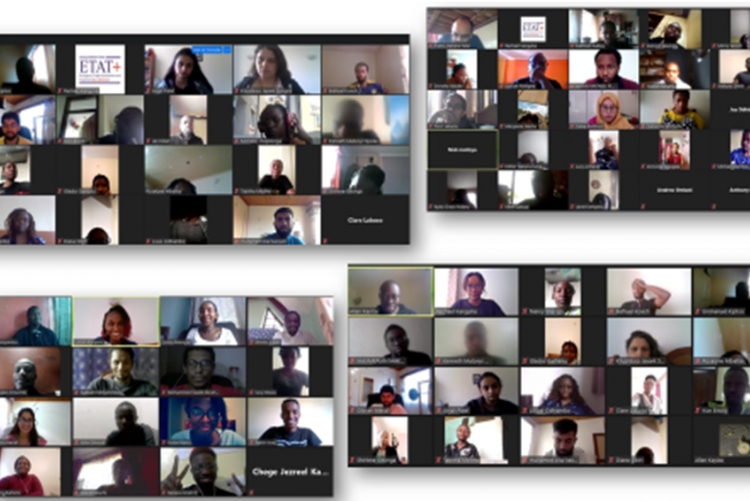The ETAT+ trainings are aimed at introducing Clinical Practice Guidelines (CPG). These CPG cover the commonest causes of mortality for under five years in resource limited countries. The course equips health workers with knowledge and skills for triage, early recognition, rapid assessment and management of the sick children. This includes life support skills for newborns, infants and children.
And currently it has been incorporated into pediatric clinical rotations during the undergraduate training and it’s the first training that training in pediatrics at a postgraduate level in Pediatrics at the Department of Paediatrics and Child Health, College of Health Sciences, University of Nairobi.
The training has always been over a period of 5 days in which participants through plenary lectures and physical skills trainings are trained in skills and knowledge necessary for triage, early recognition, rapid assessment and management of very sick children.
This year the training for 5th year undergraduates pursuing a bachelor’s degree in medicine and surgery took place from 21st to 25th September, 2020. And for the first time since the ETAT+ training started, this year the training due to the COVID 19 pandemic, the training was predominantly virtual on the zoom platform. The expertise of the trainers off course together with the cooperation of the participants allowed this to successfully happen.
The training had sessions of plenary lectures, after each of which the participants were divided into breakout rooms (small groups of about 20 participants) and this is easily done thought the zoom platform. Each break out room had about 2-3 trainers and these facilitated an active discussion about the aspects discussed in the plenary sessions.
Emergency scenarios were used to assist in these discussions to make all aspects practical. All questions that the participants had were all answered within these small discussions for everyone to understand. And to make all aspects visualized, there was always a scribe within the groups and this would use a would white board that every individual could see on their individual screens.
Time keeping was very paramount in the whole training and this is one of the aspects that made the course successful.
On the final day of the training, physical skills training were carried out, in which participants were physically taught and were required to demonstrate back the skills taught through the whole program, including Newborn resuscitation, Giving effective ventilations using a bag mask device during resuscitation of a child with no signs of life, giving effective chest compressions, among other skills.
At the end of the program, outstanding students were rewarded and everyone set off to begin their great clinical rotation in pediatrics and child health for the next 3 months.
Special thanks goes to Prof. Grace Irimu who is the program head at the Department of Pediatrics and Child Health, University of Nairobi for the success of this virtual training plus the whole faculty at the department and also to all the ETAT+ trainers who made this training happen.
Click here to see presentations.
- Log in to post comments

